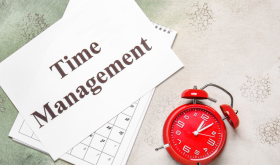Procrastination – the habit of putting things off despite knowing it may cause stress or missed opportunities – is a challenge many of us face. Whether it’s delaying a work deadline, avoiding a difficult decision, or sidestepping a personal goal, procrastination can undermine our productivity and peace of mind. The good news is that it’s not a character flaw, but a habit we can change. This article explores proven strategies to help you take action more consistently and with greater confidence.
Why Do We Procrastinate?
Psychologists understand procrastination not as a time management problem, but as an emotional regulation issue. According to Dr Tim Pychyl, a researcher at Carleton University, we procrastinate to avoid negative emotions associated with a task – boredom, frustration, self-doubt or anxiety. (Pychyl & Sirois, 2016)
Best Practices to Avoid Procrastination
1. Break Tasks into Smaller Steps
Large, vague goals can be paralysing. Instead, break them into concrete, manageable chunks. This approach aligns with behavioural psychology: when a task feels too big, our brains interpret it as a threat.
Example:
Instead of “write report”, start with “create report outline” or “write first paragraph”.
Pro tip: Try the Pomodoro Technique – 25 minutes of focused work followed by a 5-minute break. (Cirillo, 2006)
2. Use Implementation Intentions (“If-Then” Planning)
Research shows that forming “if-then” plans significantly increases goal achievement. A meta-analysis found it improves success rates by as much as 300%. (Gollwitzer & Sheeran, 2006)
Example:
“If it’s 9 a.m., then I’ll sit at my desk and start drafting the email.”
3. Minimise Distractions and Set Boundaries
Your environment has a major influence on your ability to focus. Identify your key distractions – such as your phone, social media, or a cluttered desk – and eliminate or reduce them.
Tips:
-
Use tools like Freedom or Cold Turkey to block access to distracting websites.
-
Schedule “deep work” sessions in your diary with a clear start and end time.
4. Practice Self-Compassion, Not Self-Criticism
Research indicates that self-forgiveness helps reduce future procrastination. One study found that students who forgave themselves for procrastinating on an exam were less likely to repeat the behaviour on future assessments. (Wohl, Pychyl & Bennett, 2010)
Being kind to yourself lowers emotional resistance and increases the likelihood of re-engaging with tasks.
5. Create a Reward System
Use immediate rewards to reinforce task completion, particularly when the task has long-term benefits but no short-term gratification.
Example:
“Once I finish this presentation, I’ll go for a walk or have a coffee break.”
This leverages your brain’s dopamine system – the same system that drives procrastination through instant gratification.
6. Make a Public Commitment or Use Accountability
Telling others about your goals increases your chances of success due to social pressure and shared expectations.
Try:
-
Sharing your goal with a colleague, friend or coach.
7. Reframe the Task Emotionally
Rather than seeing a task as a burden, reframe it as an opportunity or a choice.
Instead of:
“I have to do this report.”
Say:
“I choose to do this report because it helps me progress in my role.”
This simple re-framing improves motivation and reduces avoidance.
Final Thoughts
Procrastination is not about laziness. It’s often a sign of emotional overwhelm, fear of failure, or perfectionism. With greater self-awareness and a few well-chosen strategies, you can reduce the urge to delay and make meaningful progress instead.
Start small. Build momentum. And most importantly, be kind to yourself in the process.








